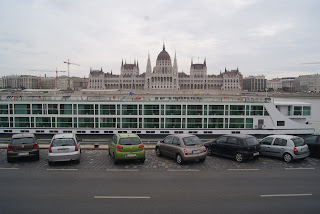For anyone that has met me, they would be flabbergasted to learn that I used to teach conversation. Those who can't, teach[1]. One of the easiest, and classic, of openers to these lessons with new or potential students would be “what are your hobbies?“
Apart from having to explain to approximately 70% of people in Japan that sleeping isn't a hobby, this works in situations where someone has actively come to speak in an informal situation to give them an opportunity to talk about something that they are interested in, and the teacher would be expected to be non-judgemental of their content but entirely judgemental on their delivery.
I was reminded of this recently when discussing job interviews and being told that this particular hobby question was an interview closer[2].
I said that I really didn't agree with that in an interview and was asked why?
"It's just an easy question to deal with, anyone can answer it and it works as a nice wind down[3]. "
Well. It isn't quite as simple as that, is it? It never is.
We've all heard the stuff about an interview being two way, "the candidate is finding out about the company as much as the other way around" but that isn't really the case. The balance of power in the conversation is usually tilted towards the prospective employer so the point is, "What's the right answer here?" Interviews aren't the same as conversation, they are a dance of negotiation and we all know that each answer is used as a proxy to work out the answers to other questions left unasked. So the dancers are entwined asking, going back to the fundamentals, this:
Do I want this job?
Can they do the job? Will they fit in?
So what is the right answer? Something that says: I am interesting, I am capable, I'm reliable, I fit your team, I fit the profile of the person you want.
This isn't a conversation, this is an indicator. And what you want to indicate is all of those things without indicating it too much. As an accountant, the last thing you want to show is a surfeit of character, not a problem I ever have. So maybe it is better to be defensive and that is exactly what the answer is.
Ooh, I do a team sport, that shows I work well in a team and I bloody enjoy it too.
That's the ideal, is it not?
But let's have a look at what I could say, feasibly and honestly, using my blog posts here as a guide[4].
Yep, this is fine. We want those that seem culturally plugged in and this is such a broad idea. Everyone likes holidays[5] and so this isn't hard to back up. List off a few places etc but not too much detail.
Is it right to say this? What does someone that likes going to the cinema (and I actually don't particularly like cinemas) say about themselves? I like to sit in the dark and not talk for a couple of hours. Film is a broad medium, what is the commonality in the films I have written about (generally at the more esoteric end of the mainstream) and someone that loves the latest Transformers movie?
Maybe I'm out of date with this but surely this does not play well with large segments of society. I could list off many ways in which I'm a better person through games but I'm not sure that I'd ever recover from the initial eye roll you just did then when you read that…
Is a situation where people create photos in huge numbers going to allow this to be really seen as a hobby? Taking photographs with a dedicated camera, as I do, is really the preserve of a certain mindset now and I'm not sure that is necessarily a mindset people want in the office. Photography is probably an acceptable answer[6] as I think it has the appearance of being normal and well-adjusted.
What's the chance of a person interviewing me having similar politics to me or even understanding what being interested in politics even means? I didn't know what it meant a few years ago, but I did know that they might be weirdos. Party politics is probably not a good thing to bring up. The local elements of it have brought me into the community in a way that otherwise seems unlikely and I think this sounds good in this situation as it does not imply a political position… I’d argue being the kind of person that is interested in the community suggests a particular kind of person but this is a safe answer.
I feel like this is a safe option. Most people like, or feign an enjoyment of, football and it does not seem to have the same connotations that it did when I was younger. There is also a massive range over what being into football means and I don’t seem to like talking to most football fans that much so it may also be a risk.
Does having a blog count? I would not count this as a hobby but it does use up some of my finite time, and there are obviously some things it would indicate about me. But I'd guess a lot of people would argue that it is pretty geeky. It does not feel like a safe answer to me.
Fundamentally, the point is that what I mean and what that indicates to the listener can be hugely different and arguably a risk that isn't worth taking in an interview for a candidate. I'm pretty likely to be drawn into an aside if I get probed and I see most of my time in public as a struggle to ensure that I am not being myself too much so I am quite reticent to be forthcoming in these situations. Once someone is stuck with me, then I might be myself a bit more. Contractual obligation is a beautiful thing.
I think that an interview is almost inherently (for most situations) asymmetric in terms of the power dynamic and that any element that further puts a candidate under pressure about non-work items isn’t very fair. What does an interviewer do with that information or what is thought to be done with it? I think that is the risk and I would not want to be open to the accusation that I did not hire someone because they had a heartfelt interest in the pottery of the 19th century. But then, you would have to wonder about someone who would say they had that interest[7], wouldn't you...?
1. This is an incredibly unfair assertion, as a phrase. Apart from denigrating a very important profession, there are many instances when you can know what to do but be unable, through ability, physique etc, to actually do it.↩
2. Conversationally, there are basically two types of questions - opened and closed. I used to suggest that closed questions are often good for opening up a conversation as they don't require much thought from the answer but the question needs formulation. The point being that the effort comes from the questioner showing willingness to interact and then adapting the flow of conversations depending on that answer. ↩
3. I may just prefer the wind-up.↩
4. Using only the blog allows this to be self-reflective but is not exhaustive - I don't have posts related to all of my interests.↩
5. "I wish I didn't have vacation time - I have no idea what to do with it. It's like a four-week reminder of what a loser I am." as a character in The Imperfectionists state. Maybe not quite everybody.↩
6. I am not sure that it makes sense for me, personally, to talk of the visual medium.↩
7. Hmmm, maybe it does work as kind of a test of intelligence?↩
2. Conversationally, there are basically two types of questions - opened and closed. I used to suggest that closed questions are often good for opening up a conversation as they don't require much thought from the answer but the question needs formulation. The point being that the effort comes from the questioner showing willingness to interact and then adapting the flow of conversations depending on that answer. ↩
3. I may just prefer the wind-up.↩
4. Using only the blog allows this to be self-reflective but is not exhaustive - I don't have posts related to all of my interests.↩
5. "I wish I didn't have vacation time - I have no idea what to do with it. It's like a four-week reminder of what a loser I am." as a character in The Imperfectionists state. Maybe not quite everybody.↩
6. I am not sure that it makes sense for me, personally, to talk of the visual medium.↩
7. Hmmm, maybe it does work as kind of a test of intelligence?↩








